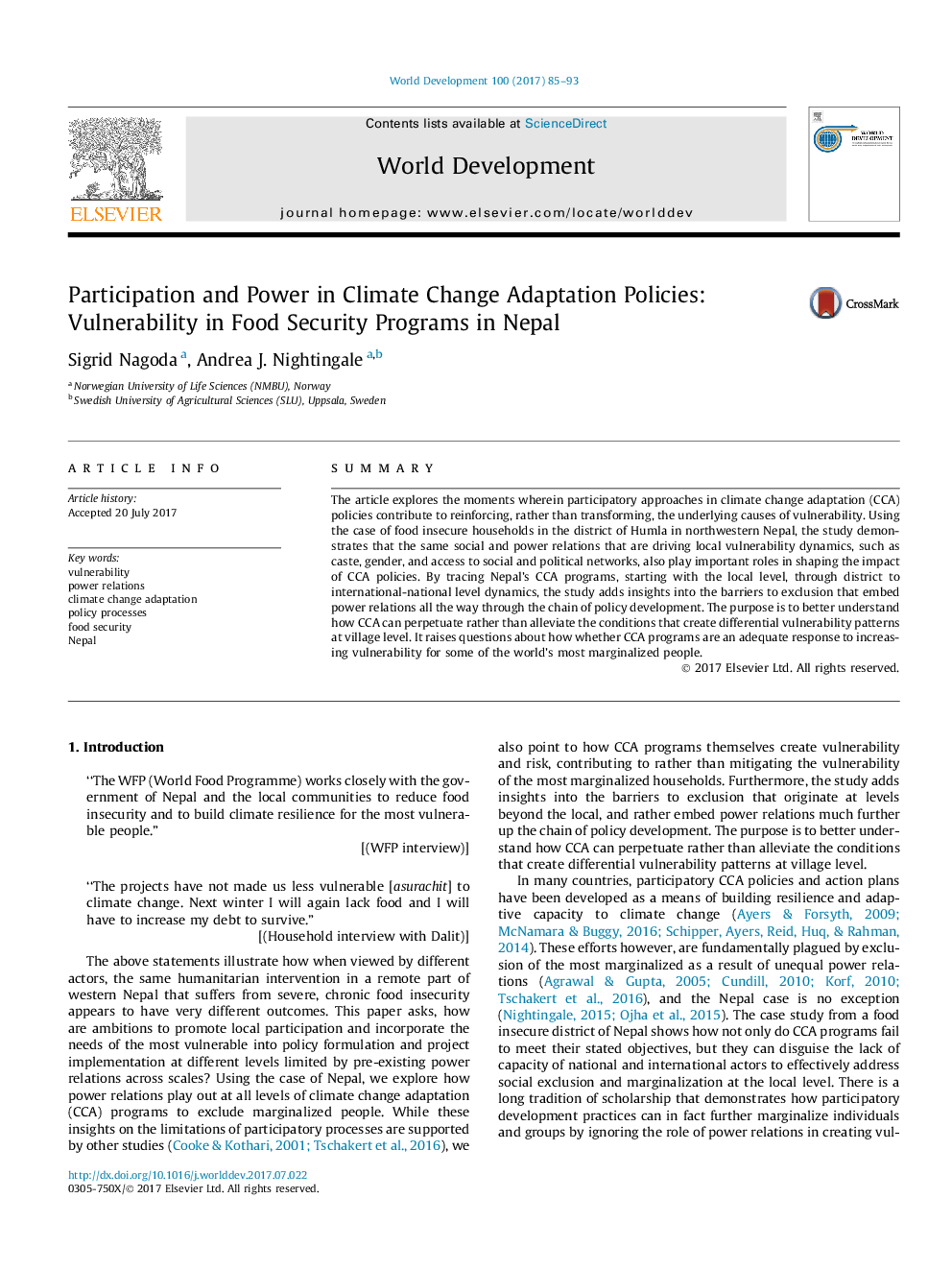| Article ID | Journal | Published Year | Pages | File Type |
|---|---|---|---|---|
| 5105012 | World Development | 2017 | 9 Pages |
Abstract
The article explores the moments wherein participatory approaches in climate change adaptation (CCA) policies contribute to reinforcing, rather than transforming, the underlying causes of vulnerability. Using the case of food insecure households in the district of Humla in northwestern Nepal, the study demonstrates that the same social and power relations that are driving local vulnerability dynamics, such as caste, gender, and access to social and political networks, also play important roles in shaping the impact of CCA policies. By tracing Nepal's CCA programs, starting with the local level, through district to international-national level dynamics, the study adds insights into the barriers to exclusion that embed power relations all the way through the chain of policy development. The purpose is to better understand how CCA can perpetuate rather than alleviate the conditions that create differential vulnerability patterns at village level. It raises questions about how whether CCA programs are an adequate response to increasing vulnerability for some of the world's most marginalized people.
Related Topics
Social Sciences and Humanities
Economics, Econometrics and Finance
Economics and Econometrics
Authors
Sigrid Nagoda, Andrea J. Nightingale,
